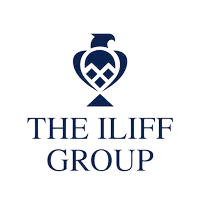Selling Florida Property Subject to an HOA or Condo Association

Selling Florida property located within a real estate development governed by a homeowners association (“HOA”) or a condominium association presents unique challenges that do not typically exist with traditional real estate transactions. These communities function under and are subject to specific rules and regulations that can considerably impact the sales process. As a realtor, it’s important to be cognizant that there are governing documents with specific pre-closing requirements that buyers and sellers must meet to ensure a smooth transaction for your clients.
What are the key considerations for which realtors need to be aware:
Disclosure Obligations
Florida law mandates that sellers provide buyers with comprehensive information about the HOA or condo association, including governance documents (i.e., Covenants, Conditions, Restrictions, and Easements for an HOA, and Declaration of Condominium, Articles of Incorporation, Bylaws, Rules and Regulations, Milestone Inspection Reports, Structural Integrity Reserve Studies, and Turnover Inspection Reports, for a condominium), financial statements and budgets, and fees and any pending assessments. Keep in mind that this list is not exhaustive, as each development has its own unique documentation. However, the failure to disclose and provide pertinent information and documentation can lead to complications, possible legal challenges, and the potential for cancellation of a contract.
Association Approval Processes
Many associations (both HOA and Condominium) require prospective buyers to undergo an approval process, which may include background checks and interviews. This process can and often does present delays (some associations respond in a matter of hours or days, and others can take weeks). In some cases, the process can result in denying a buyer’s application for approval. It’s important to familiarize yourself with a specific association’s procedures (and time constraints) to manage client expectations. Be mindful that an association can affect just how quickly a transaction can be brought to closing.
Financial Assessments, Fees, and Restrictions
HOAs and condo associations typically impose regular periodic dues and, occasionally, special assessments for unforeseen expenses. These financial obligations can influence a buyer’s evaluation process and their ability to secure financing. Ensure that all fees, assessments, and potential special assessments are clearly communicated to prospective buyers. Some associations have restrictions on leasing, pet ownership, property modifications, or resales. Understanding these limitations is helpful, as they can affect the marketability of a property and the pool of potential buyers who can accept such limits.
Estoppel Certificates
An estoppel certificate provides a snapshot of a seller’s standing with an association, detailing the fees, delinquencies, or any violations. Keep in mind that some developments have more than one association. Obtaining an estoppel certificate for each is a critical step in the closing process, as it ensures that all financial obligations are accounted for prior to the transfer of title to the property.
Best Practices for Realtors:
Educate Your Clients:
- Safeguard that both sellers and buyers are fully informed about the impacts and requirements of living in a development governed by an association, including the approval processes, restrictions, rules, and fees.
Maintain Open Communication:
- Regularly communicate and interact with the association’s management company to stay updated on any changes that could impact the transaction.
Consult Legal Counsel:
- Given the complexities involved, seeking guidance from a real estate attorney can help navigate potential pitfalls and ensure compliance with all of the legal requirements associated with developments having an association.
Conclusion
Navigating the sale of property governed by an HOA or condo association requires a little extra diligence and a detailed understanding of applicable regulations. By staying informed and proactive, realtors can effectively manage these transactions, ensuring a seamless closing process for their clients.
Should you have questions or need assistance with a property governed by an association, consult your local real estate attorney for advice and guidance.
Author: Mark C. Hanewich, Esq. with Berlin Patten Ebling
Categories
- All Blogs (72)
- Cost of Living in Venice, FL (3)
- Dog Friendly (1)
- Downtown Venice, FL (1)
- Golf in Venice, FL (1)
- Healthcare in Venice, FL (1)
- Job Opportunities in Venice, FL (1)
- Legal Considerations (9)
- Lifestyle and Culture (4)
- Move to Venice, FL (24)
- Nearby Areas & Comparison Guides (7)
- Neighborhoods in Venice, FL (14)
- Property Taxes in Venice, FL (2)
- Relocation Questions & Miscellaneous Topics (15)
- Retire in Venice, FL (5)
- Schools in Venice, FL (2)
- Things to do in Venice, FL (7)
Recent Posts











